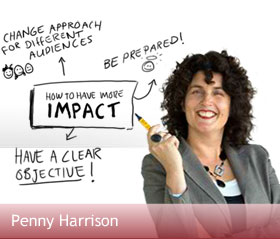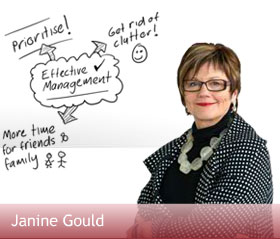|
 |
Building Resilience in Children and Teens:
How to give your children roots and wings
by Kenneth Ginsberg
American Academy of Pediatrics, USA, 2008
Resilience is such an important strength for our children to have as adults. Penny attended this guy’s workshop a couple of years ago and found it fantastic. A very useful book on parenting that even your teens will dip into. You can see Kenneth Ginsberg in action on: Parenting skills and keeping young drivers safe
|
|
 |
Lead your boss: The subtle art of managing up
by John Baldoni
2010, Amacom, USA, 2010
We can’t all be the top dog, but often we do need to lead and when you are leading from the middle there are unique challenges. Baldoni’s book has a lot of useful stuff about leadership and is written from the point of view of getting things done when you aren’t the king pin. John Baldoni talks on this subject on: Leading Up.
|
|
 |
The Brain that Changes Itself: Stories of
personal triumph from the frontiers of brain science
by Norman Doidge
Penguin Books, USA, 2007
Lee has found this book during her personal journey as her son recovered from severe brain injury, but it has direct relevance for all our brains. Doidge’s writing simplifies for us amazing new developments understanding the plasticity of the brain. He uses fascinating anecdotes about people overcoming huge problems with their brains by rewiring their thought processes. Whether or not you face damage to your brain, the book shows that it is possible to change thought processes and habits. There are several video clips of Norman Doidge on the web. Here's a 2010 clip.
|
|
 |
Authentic Happiness: Using the new psychology to realise
your potential for lasting fulfillment
by Martin Seligman
Simon & Schuster, USA, 2006
This book helps you to assess the level of happiness in your life and to see whether you tend to be optimistic or pessimistic. Seligman provides practical tools to develop a more positive attitude to life. Of course, if you are a pessimist you won’t believe it is possible increase your happiness quotient, but a lot of people have found this book very enlightening and helpful. You can see Martin Seligman on positive psychology | Video on TED.com
|
|
 |
Get Your Groove Back
by Jasbinder Singh
Raupo Publishing, NZ, 2006
Jasbinder Singh is a very experienced clinical psychologist and a highly regarded coach. This book is ideal if you have lost your mojo and are trying to work out what to do next or just need a boost in confidence. It also focuses on appreciating where you are at right now. Whilst we don’t have a video clip for Jasbinder, Penny has met Jasbinder and says she is a really neat person.
|
|
 |
Resonate: Present visual stories that
transform audience
by Nancy Duarte
John Wiley, USA, 2010
Duarte shows you the nuts and bolts of how to develop your stories so they will work with an audience. She unpicks specific examples from movies and literature to show you how to really engage your audience. Aside from being very useful for improving your presentations, this book is a fascinating read in itself. Nancy talks about her book on YouTube.
|
|
 |
Say it like Obama: The power of speaking
with purpose and vision
by Shelly Leanne
McGraw Hill, USA, 2008
Say what you like about the way Obama is coping with his ‘inbox from hell’; he certainly can transfix an audience. This book takes apart his skills of oratory and shows us how it is done. It includes two of his most famous speeches and even shows the text notes for Obama’s pauses, shifts in volume, gesture and so on. Leanne shows us how Obama uses his own experiences to connect with an audience. This book is an enlightening way to ‘really improve your public speaking. One of the speeches is Obama’s acceptance speech at the2008 Democratic Convention. Ah, it seems so long ago! In this video clip you can watch the speech and see the transcript.
|
|
 |
Techniques for coaching and
mentoring in the workplace
by David Clutterbuck and David Megginson
Elsevier Butterworth Heinemann, UK, 2005
Clutterbuck was in New Zealand and presented a stimulating workshop at the 2008 NZATD conference. This very practical book is a great resource for coaches and mentors generally. It is well-researched and easy to follow. It provides a range of coaching and mentoring tools that enables you may not come across from merely attending a coaching course. You could use the tools to just widen your repertoire or to try a different approach with a client who is stuck. You can see David Clutterbuck in action in 2008 at a Networking and Mentoring Conference
|
|
 |
The Art of Possibility: Transforming personal
and professional life
by Ben Zander and Rosamund Stone Zander
Penguin Books, USA 2002
If you read as many self-development books as we do, they can become a bit ho hum. The Zander book is Lee’s all time favourite. If you like classical music, then this book is great. Ben Zander is the conductor of the Boston Philharmonic Orchestra. Rosamund Zander is a child therapist. The book combines their knowledge from their professional fields to communicate very effectively about self-development. Its content isn’t new, but the way it is put together makes it inherently interesting. It is also very practical. Here is Ben Zander on the Art of Possibility in 2009.
|
|
 |
The Seven Habits of Highly Effective People
Anniversary Edition
by Stephen Covey
Simon & Schuster, USA, 2004
Good old Stephen Covey. The Seven Habits was first published in 1989. In a way it contained nothing new, but the packaging of the old was definitely new and it is still one of the best collections of key personal development habits. The book led to Covey’s astounding success as a management guru. Some people say it made the aspirational standards easy to understand but they are still not easy to apply. Maybe that says more about our lack of consistency than it does about Covey. Lee tried the Franklin Covey diary when it came out, but found it too daunting. However, if you need to get your head around the basics of self-confidence, self-management and communication, this is a great starter.
His latest book: ‘Predictable Results in Unpredictable Time’ is based on four key approaches to creating top performance. You can see Stephen Covey on Success Television
|
|













